Chadian Youth: the Strength to Learn, the Courage to Engage in Entrepreneurship
In Chad, many young people are creating economic opportunities by developing their own businesses, with the support of local authorities and development partners. To increase the impact of their activities, some of them are training in digital tools. With passion and creativity, they share their journey and their dreams.
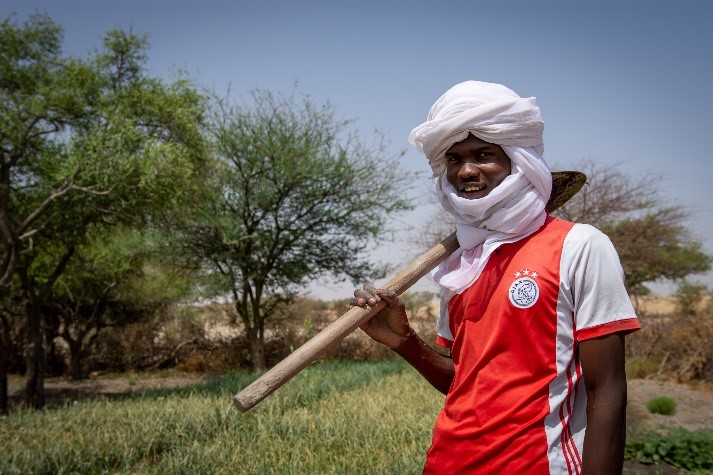
It’s 6 a.m. Aboubacar’s slim silhouette, standing at just over six feet tall, zigzags deftly, hose in hand, between the squash plants on his small market-garden farm.
The young farmer decided to build his life on this vast, arid plot of land, just a few kilometres from the town of Moussoro, the capital of Bahr El Gazel Province. Aboubakar may only be 25, but he’s already lived it all, or nearly. Dropping out of school at the age of 15 due to lack of funds, daring to try his hand at various makeshift businesses, taking to the desert roads as a labourer on freight trucks, a gold prospector, a wifi booth operator in gold-mining areas, exile in Libya and the Central African Republic…
Two years ago, the young man returned to his native land to settle down with his savings. Starting up farming on his own wasn’t easy, but he was able to count on the support of his family and friends, the municipality and the GIZ PAMELOT project to develop his project and make a living from it.

The provinces of Barh el Gazel and Kanem are affected by chronic food and nutritional insecurity, exacerbated by the effects of climate change. However, both provinces have potential for economic development:
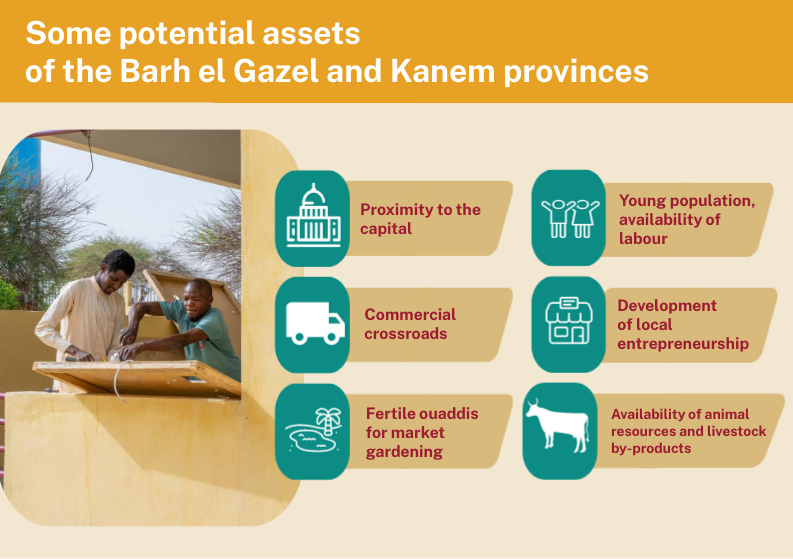
Despite these assets, much remains to be done: the region’s economic activities are currently limited, and people have few opportunities to diversify their activities. The absence of social protection systems makes them vulnerable to forced recapitalisation of livestock or debt.
In this context, young people are among the first to suffer from a lack of opportunities and an uncertain future.
According to the mayor of Moussoro:
Many young people have no jobs. They may be rejected by the family as they are perceived as idlers. Without any activity, they earn nothing… This leads these young people to leave their community, with all the dangers of exile. They risk going to Europe or Libya, others go to the gold-mining regions in Chad – it’s dangerous, some never come back… And if they stay here, they are left jobless, they can’t develop a business, and they can turn to delinquency.”
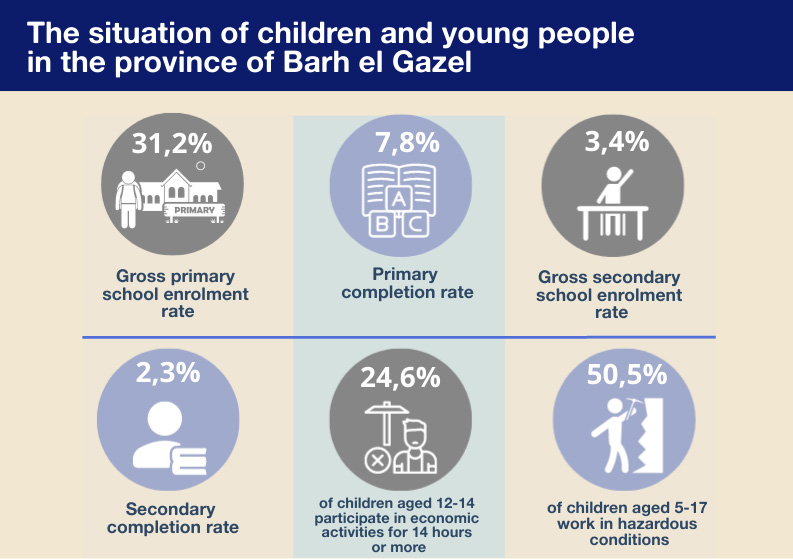
Local stakeholders, in particular through the Provincial Action Committees, are working with their partners to implement initiatives to support young people’s employability. The Mayor of Moussoro refers in particular to the creation of a training centre:
Around a multi-partner synergy, we have initiated the Technical and Vocational Training Centre (Centre de Formation Technique et Professionnelle in French – CFTP). The German-funded PAMELOT project, carried out the construction work, involving us from the design stage. To keep the centre running, the municipality contributed by supplying the furniture, providing a security guard and planting trees on the land. Other partners, such as the IOM-WFP consortium, provided technical equipment. The State has also contributed to the allocation of teaching staff. It’s a synergy that has enabled us to get this centre up and running today, and to perpetuate the gains we’ve made.”
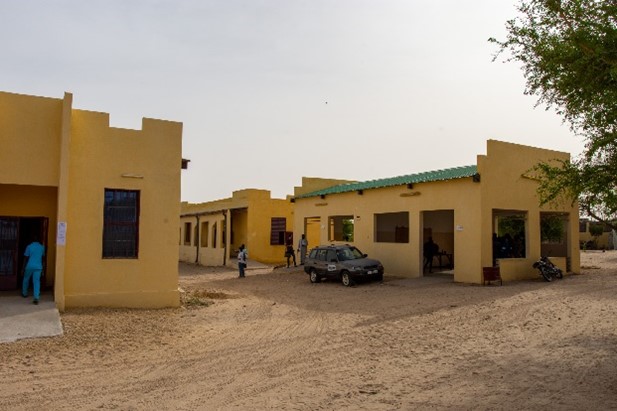
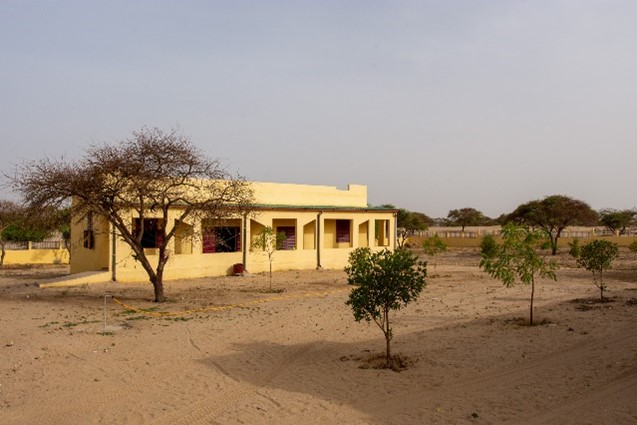
Sanigue Koukta is Director of the training centre and an electricity teacher. To date, he has trained almost 250 apprentices.
The technical vocational training centre is currently training 63 apprentices over a 2-year period in three different fields: sewing, car mechanics and building electricity. Long before that, GIZ supported the training of 92 young people in solar energy, mechanics and market gardening. Other programs such as WFP and IOM have also trained 75 people in sewing and mechanics.”
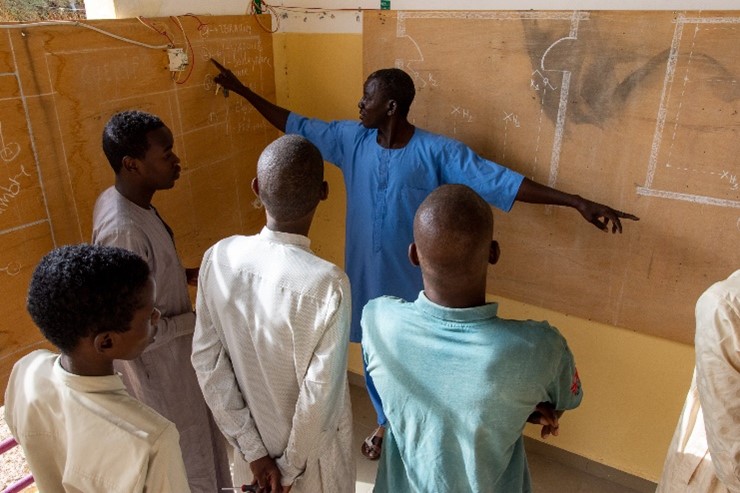
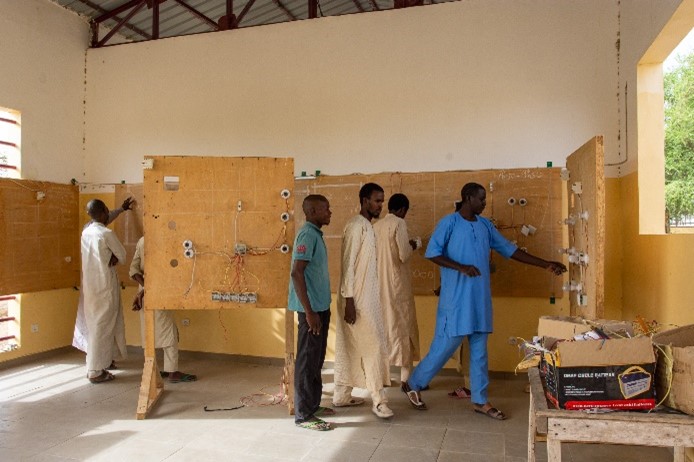
Aboubakar, to develop his market gardening project, was able to get technical training at the centre. These skills have enabled him to improve his project and help him become a role model in his community:
After my training, I really started growing crops on my plot. I worked by relying on the rain, and on a traditional well where I drew water with a bucket. Watering was a real pain, so my older brother and a neighbour helped me by lending me money to drill a borehole equipped with solar panels. Today, I sell what I produce at the market, and reinvest my profits in my farm. (…) I’m a kind of role model today for my friends. Young people want to be like me, but it’s not easy. My friends would like to embark on this type of project, but they don’t have the means or resources to do so…”
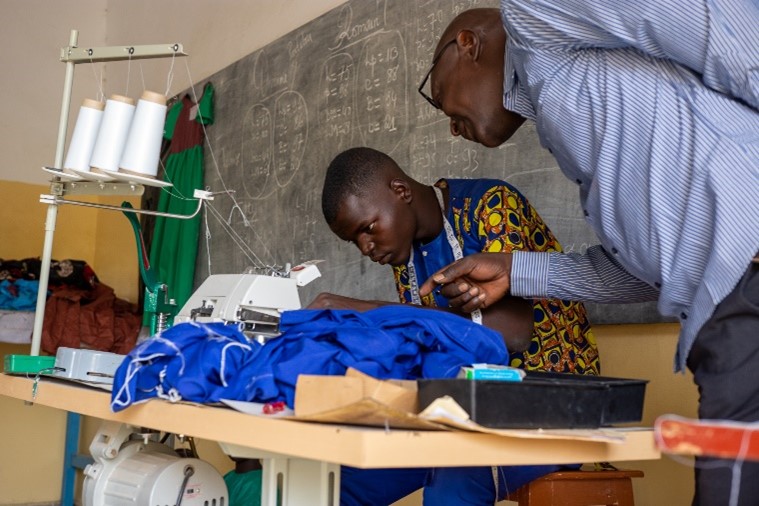
IT tools to support youth entrepreneurship
In the town of Mao, Kanem Province, the new Digital resource centre (Centre de Ressources Numériques – CRN) is a major asset for young people, who benefit from low-cost training.
The second deputy mayor is closely monitoring the work of the CRN and the future business incubator that will be associated with it:
IT is very important for young people. Business and government executives also need IT training. Once they have successfully completed the training, young people will find it easier to get a job with their certificate. They also create their own jobs.”
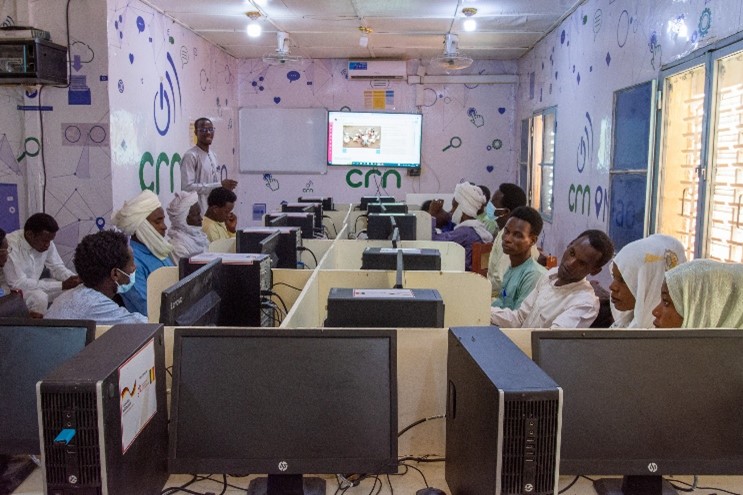
The digital resource centre is accessible to youth associations, platforms and young people in general. Community radio stations inform and raise awareness on the digital resource centre’s activities. Access to training courses cost 20,000 XAF (30 euros) per month. People who can’t afford it have easier access.
Moustapha is a facilitator at the centre, which is housed in a Town Hall building:
Demand for computer training is very high in Mao, and the centre is open to everyone. Since the centre opened, we have trained 159 participants, including 33 women. The activities carried out here are computer and office automation training. We also offer services such as photocopying, typing, scanning, laminating and binding. The main computer training courses cover Word, Excel, PowerPoint and Internet access. We also have 20 economic project leaders who have been trained and whom we are currently monitoring.”
Three other digital resource centres have also opened in Moussoro, Massaguet and Massakory, with support from the PAMELOT project implemented by GIZ.
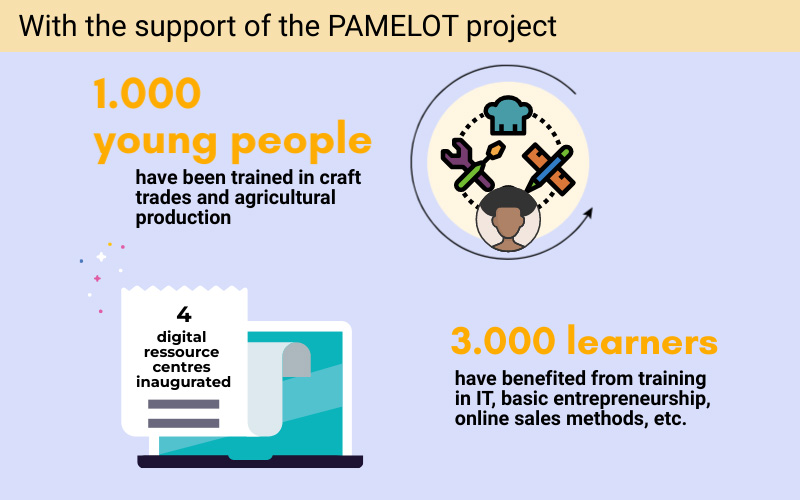
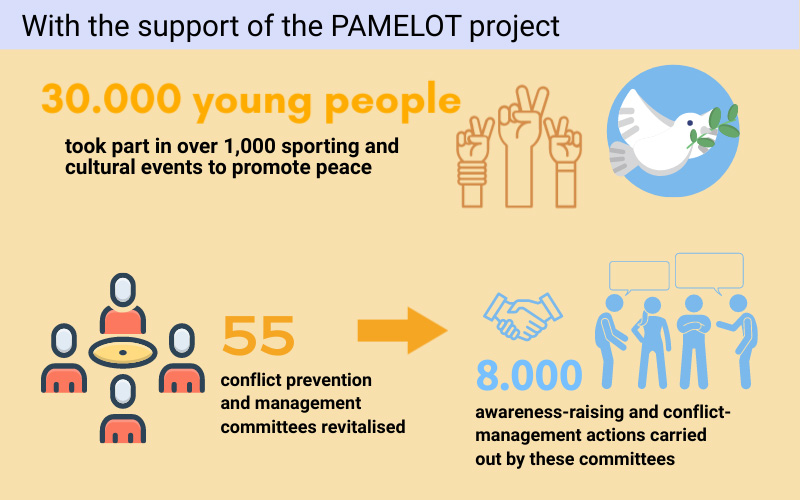
Embracing a passionate career
In the provinces of Kanem and Barh El Gazel, the road to employment and empowerment for women is also paved with obstacles. Prisca, a young mother, has embarked on a true obstacle course to embrace a career she is passionate about: electrician.
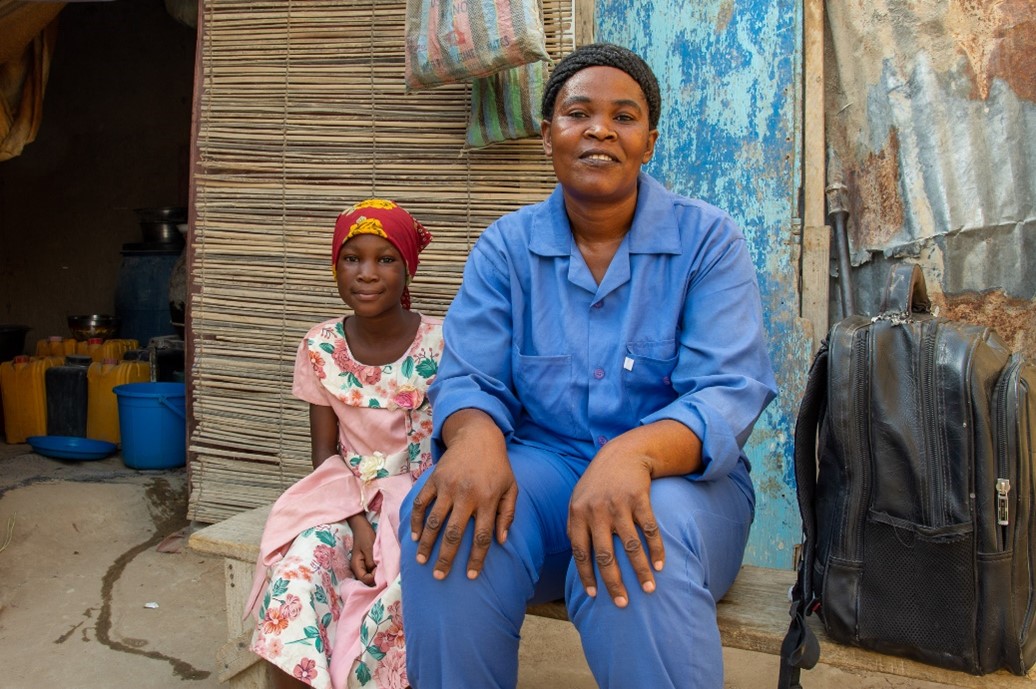
I was inspired to become an electrician when I was still a child: at school, I read a book with an illustration of a woman electrician, and it immediately made me want to do it for a living! Before I trained as an electrician, I did a bit of trading to make ends meet, but it was difficult. The way other people look at my job as a woman is very difficult. Since I wear overalls to work on sites, people laugh at me. But it’s not just a job for men! (…) I learned my job at the training centre and completed a 45-day apprenticeship with the support of GIZ. I have a daughter and this has enabled me to find work. I find jobs and earn money, which allows me to pay my rent, school and food for my daughter.”
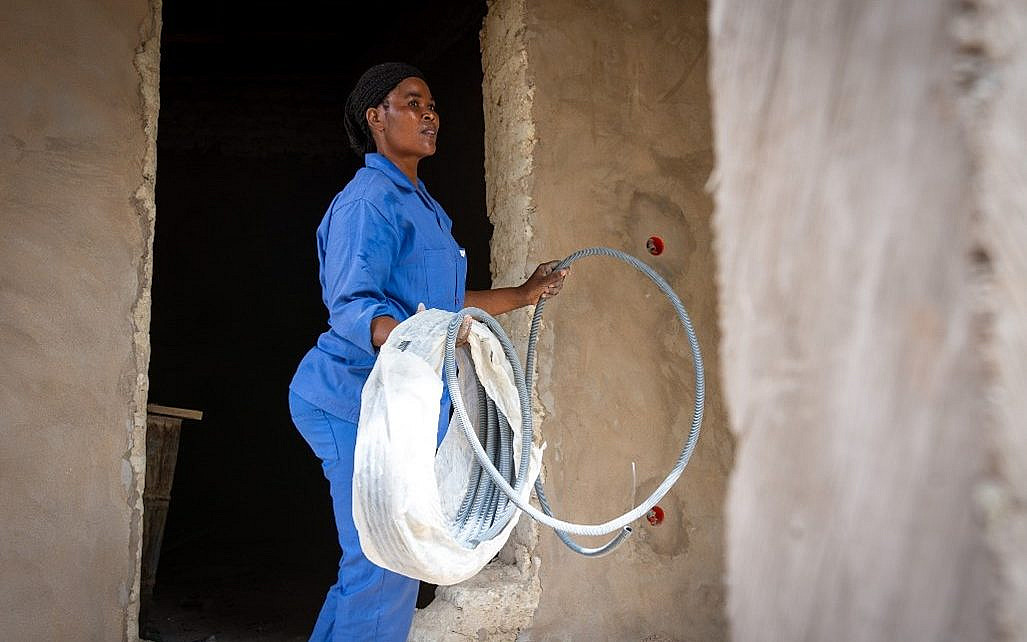
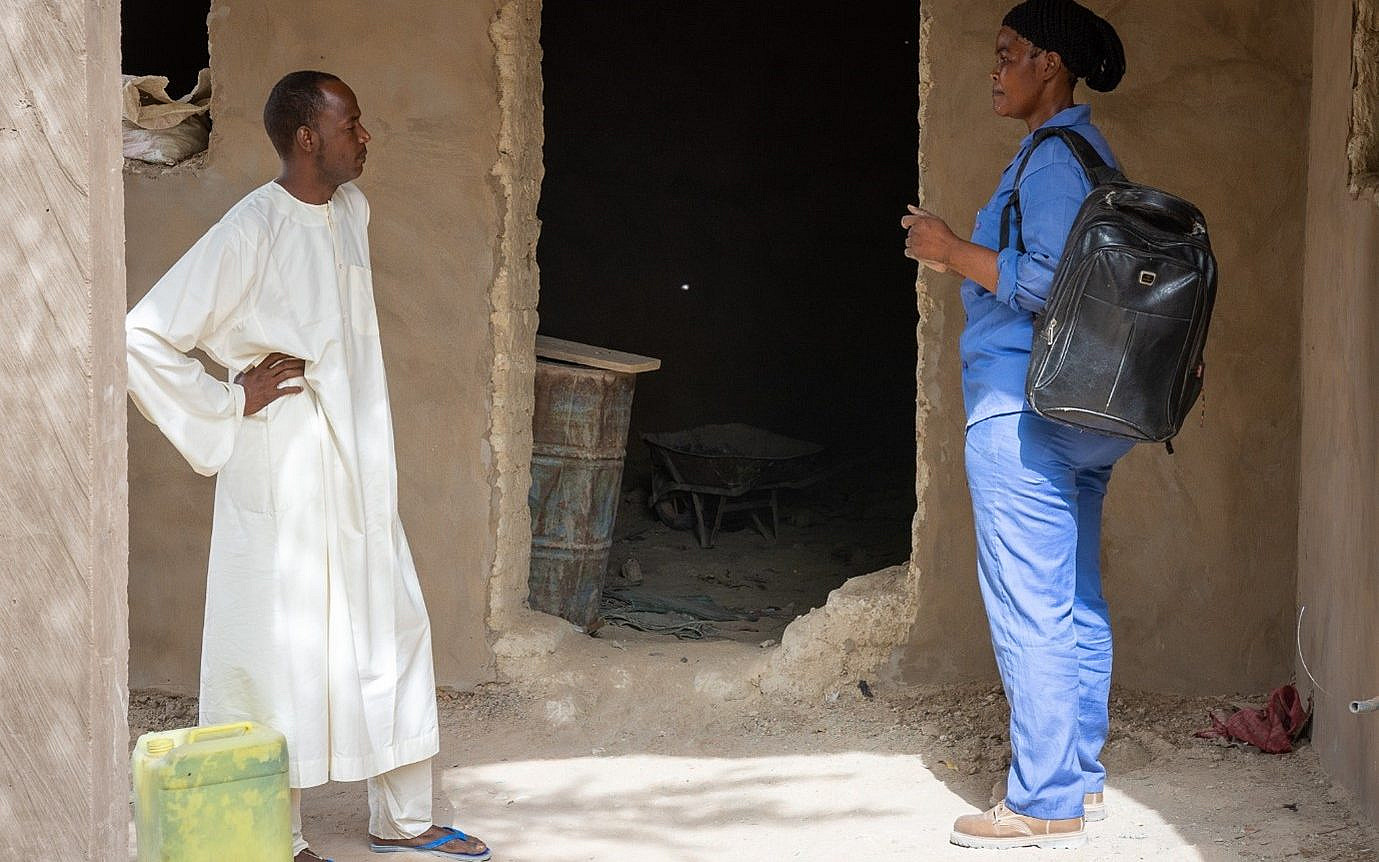
Moustapha is a young entrepreneur who raises chickens in Mao. He is training at CRN to complement his technical apprenticeship.
I’m continuing my training with online courses from Mao’s Digital Resource Centre. This gives us lots of opportunities. What motivates me is to be able to continue learning activities, so if I can go to the digital resource centre every day, I go there and log on to the learning platform. With these courses, I study the care of broiler chickens and how to farm them. With the training courses I understood that breeding chickens is a good activity and I organised myself to take better care of them.”
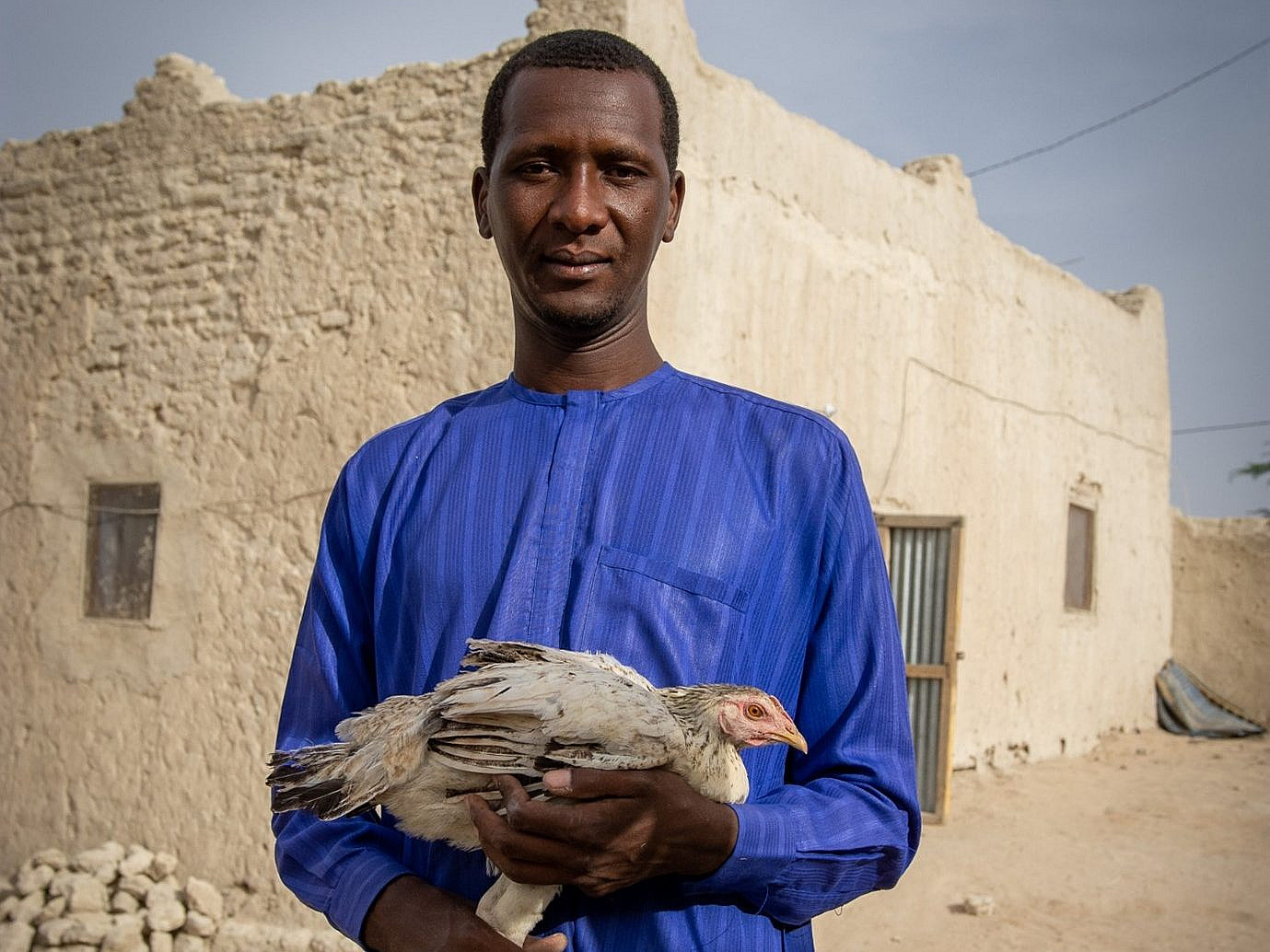
A springboard for the dream of a better future
Initiatives to support youth training and entrepreneurship are not a miracle solution to the challenges facing young people in Western Chad. But these contributions are important levers of emancipation, and a springboard for the dream of a better future.
Full of hope, Aboubakar explains, “My dream is to be self-sufficient and to be able to help my family and the region. I’ve lived and seen it all, whether it’s suffering here or in neighbouring countries. But I’d rather suffer at home than abroad, so I’m trusting God and hoping he’ll help me get where I want to go!“
Prisca, as she watches her daughter walk away on her way to school, shares: “My dream is to train other women as electricians and create a company with them, a company of women electricians. I would like to teach them the beauty and value of this profession.“
Long live the dreams of these young Chadian entrepreneurs, bearers of hope for their country…

